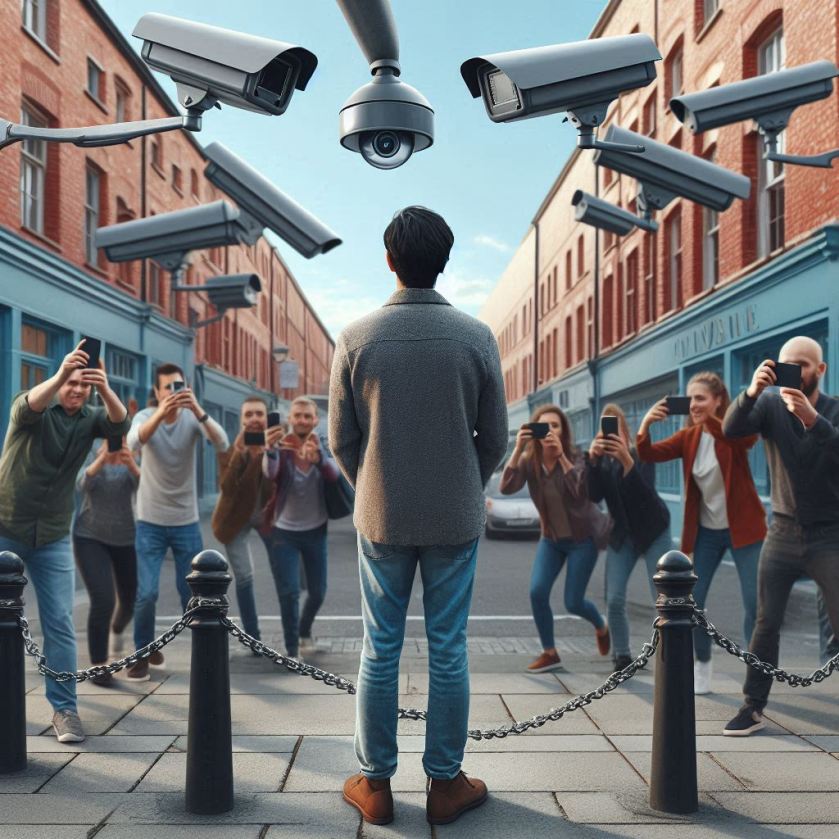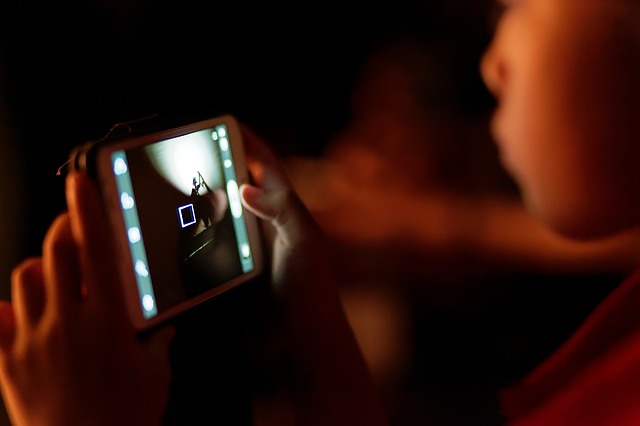I recently read Stolen Focus by Johann Hari which looks at the perception of how we are increasingly less able to focus and hold our attention on a particular task or activity, with this particularly impacting our children and young adults. Now one of the predominant views generally held in this area is that this is the result of technology and in particular the smartphone and social media however Hari goes to point to a few other things which could impact on our increasing inability to focus.
Environment

We live in a more polluted world plus increasingly are the subject of environmental changes resulting from global warming. Now in some ways we are making progress with lead no longer included in petrol and the move to electric vehicle, plus the reduction of smoking in the UK however smog is still an issue in some cities. There are also chemicals used in the production of modern goods or as by products of modern processes which all end up in the environment and eventually in our bodies. How do we focus when our bodies are subject to pollutants over a prolonged period? The answer according to Hari is simply that we cannot focus as well as we might have been able to in the past.
Reduced free play

Freedom to explore, to play and to have fun and make mistakes is a key part of the human learning process. We have evolved as a species over millions of years using this approach however more recently, we have reduced the opportunities for freedom and exploration. We increasingly supervise or even track our children to the extent that they don’t develop the social and resilience skills they may have once developed through play. I feel we do this for the reasons of seeking to keep children safe based on a perception of a more dangerous world, but this is a perception rather than a reality, resulting from the ease with which we receive news of when things go wrong and our human tendency to overweigh the importance of what comes easily to mind. As such we restrict our children from playing unobserved and freely. And the reality in terms of safety is that we are likely safer than we have ever been before. Hari makes the point of the likelihood of a child kidnapping, something we worry about and which drives our need to supervise and limit children’s freedom, being less than the likelihood of being hit by lightning. I don’t think we keep children indoors and monitored to protect them from a lightning strike!
Food
Another issue impacting on our ability to focus is our changing diet. Gone, largely, are the healthy home cooked meals involving fresh ingredients, which might be served around the family dinner table complete with family discussion. The modern diet increasingly involves microwave or other convenience foods, foods loaded with preservatives and other additives, or high in salt or sugar content, often consumed on the go or while distracted by TV or social media content. These aren’t the ideal ingredients to develop our ability to focus and in fact negatively impact on this human capability.
Sleep
Sleep and in fact the reducing amount of time spent engaged in quality sleep is another issue which Hari identified. Now some of this is certainly the result of technology and our on-demand access to TV and movies, plus to addictive social media apps which encourage doom scrolling, however I also would suggest part of it relates to the increasingly fast pace of life and the need to squeeze every second of every day for the maximum we can get out of it. This means we might get less than eight hours of sleep, maybe even only five or six hours, or less.This points to the increasing focus on the need to be more efficient, to be faster, to do more and to focus on growth and improvement.
Focus on growth
And this is the one which I think is a driver for some of the other issues, particularly the environment and our change in diet, the focus on growth, on doing better and doing more. The world focusses on growth, so the world gets more frantic, faster, busier so we have less time to do tasks and need to move on quickly; This builds a habit. We also have the economic focus meaning tech vendors prioritise profit over societal good, in the name of growth, being a more profitable or bigger company this year when compared to last year. This all drives a focus on doing whatever we can do to drive growth even where it isn’t positive for society as a whole. Now I was always a fan of the educational concept of continual professional development however on reflection here my worry is that this is unsustainable, we cannot constantly develop and get better when faced with an infinite timescale. In fact this driver, this need for growth, may make things worse and mean we are less focussed on identifying what really matters and what we need to do to achieve this.
Conclusion
I really enjoyed Hari’s book as it clearly established that technology and social media are part of the problem we now face in relation to our ability to concentrate and to focus, but they are not the whole, or the root, of the problem. There are a number of factors feeding this problem including the environment we live in, our increasing risk adverse nature which leads to a reduction in opportunity for children to play and experiment, the poorer nature of the modern diet, reduced periods spent in quality sleep, and also the driving force focussed on growth above all else.
This brings us neatly to where Hari begins in trying to solve the problem by cutting out technology and social media use for a period of time, or banning mobile phones as a school might decide to do. This impacts on part of the problem but it doesn’t cover the other factors; Maybe we need to have a broader discussion in schools in relation to focus and the things that might affect it? Maybe the problem is bigger than schools can address, and needs a more community or societal approach?


 We have all read the various media reports in relation to concerns about children’s screen time, use of social media and also how technology can be distracting and negatively impact the ability for children to focus and concentrate. I have never really signed up to these concerns, although I have always accepted that at extreme levels of screen time and use negative consequences are likely, that however can be said for most things in life, that an over indulgence will have negative results whether it is over eating, over exercising, over dieting or over use of technology.
We have all read the various media reports in relation to concerns about children’s screen time, use of social media and also how technology can be distracting and negatively impact the ability for children to focus and concentrate. I have never really signed up to these concerns, although I have always accepted that at extreme levels of screen time and use negative consequences are likely, that however can be said for most things in life, that an over indulgence will have negative results whether it is over eating, over exercising, over dieting or over use of technology. A recent visit to a school however casts this whole subject into another light and highlighted a potential benefit I hadn’t really considered. I was talking with students about the apps they use in school and the group of boys I was talking to where confidently and excitedly describing various apps which they used in different subjects. It was then that one student turned his iPad so I could see it and pronounced that he used HeadSpace. He apparently found he got stressed or distracted at times and that the HeadSpace app on his iPad allowed him to take time out and refocus. Here we had a student using technology to help with focus and distraction.
A recent visit to a school however casts this whole subject into another light and highlighted a potential benefit I hadn’t really considered. I was talking with students about the apps they use in school and the group of boys I was talking to where confidently and excitedly describing various apps which they used in different subjects. It was then that one student turned his iPad so I could see it and pronounced that he used HeadSpace. He apparently found he got stressed or distracted at times and that the HeadSpace app on his iPad allowed him to take time out and refocus. Here we had a student using technology to help with focus and distraction. I have noticed a self-perception over the last week or so that I have tended towards becoming distracted by my need to check my various devices for messages, tweets, updates, etc. Now it may be that my perception of the issue is tainted. Due to a busy workload at the moment I have taken to keeping lists of tasks to be undertaken and, as is the way, as soon as I score one task off, I add three more on. This means that my perception of progress may be that I am not making any headway which may lead me to under appreciate what I have achieved. This under appreciation may be making me feel that I am wasting time when I am checking my devices, thus leading to over accounting for the amount of time I am using up in this checking.
I have noticed a self-perception over the last week or so that I have tended towards becoming distracted by my need to check my various devices for messages, tweets, updates, etc. Now it may be that my perception of the issue is tainted. Due to a busy workload at the moment I have taken to keeping lists of tasks to be undertaken and, as is the way, as soon as I score one task off, I add three more on. This means that my perception of progress may be that I am not making any headway which may lead me to under appreciate what I have achieved. This under appreciation may be making me feel that I am wasting time when I am checking my devices, thus leading to over accounting for the amount of time I am using up in this checking.